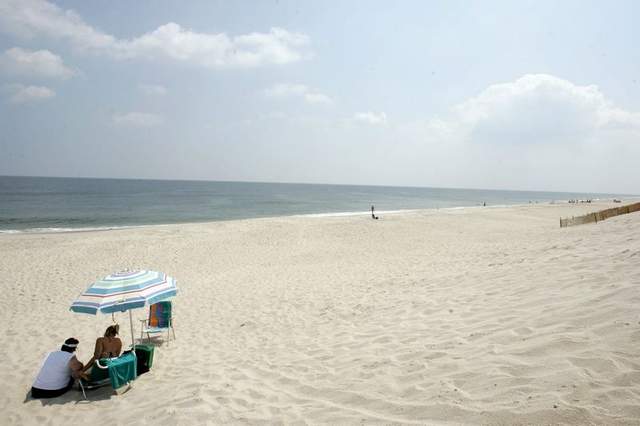
 Remove barriers to beach access
Remove barriers to beach access
Apr 5, 2011 - Asbury Park Press Editoral (read article here) If the new "commonsense" proposed beach access rules unveiled by the state Monday withstand a round of public hearings and become codified in their current form, it will be a major setback
for those who believe New Jersey's 127 miles of sandy beaches belong to everyone and to those who have worked tirelessly to eliminate access roadblocks.
There are three major flaws with the new rules. They rely on voluntary compliance, the inducements for compliance aren't strong enough and commercial and industrial properties are exempt from the rules, which will make the creation of urban waterfront parks increasingly difficult to achieve.
"There will be no loss or reduction of current access now," environmental commissioner Bob Martin told reporters in a briefing on the rules.
No reduction in access isn't the standard the administration should be setting — not after the battles that have been fought for decades to increase access, particularly in those towns that have historically resisted it — Sea Bright, Long Beach Township, Mantoloking, Deal, Long Branch and Point Pleasant Beach, among them.
Under the new rules, the DEP will allow towns to develop plans they can "tailor to their own particular geography and needs," including public accommodations for parking and restrooms. The rules will "encourage municipalities to work with the department to develop town-specific municipal public access plans." Beach access shouldn't be voluntary. It should be required of all towns, and all reasonable means of ensuring compliance should be employed.
An indication of the sort of voluntary compliance reticent towns have in mind is Long Beach Township's proposed alternative to the DEP's previous attempts to get additional public access points in the exclusive Loveladies and North Beach sections on the northern half of Long Beach Island. Mayor Joseph Mancini instead wants to add parking spaces and facilities on the bay side of Brant Beach, which is in the southern half of the 12-mile-long island.
The DEP says towns that don't comply with the rules won't be eligible for Green Acres funds, will be "ranked lower" in eligibility for beach replenishment projects and may not receive a DEP permit for routine beach grooming and sand cleanup. Given that the rules are voluntary, it's questionable how the state would be able to carry through on those disincentives — and under what circumstances it would be willing to do so.
It's also disturbing that the DEP, despite giving lip service to the notion that "access to our ocean beaches, bays and rivers is a fundamental right for everyone," is backing off on requiring commercial and industrial waterfront users to pay for off-site public access as a condition of DEP permits, saying it regards it as a tax.
The new rules should be aimed at improving beach access. The rules proposed by the DEP allow even more sand to be kicked in the beachgoer's face. The public and the beach access advocates should kick back.
